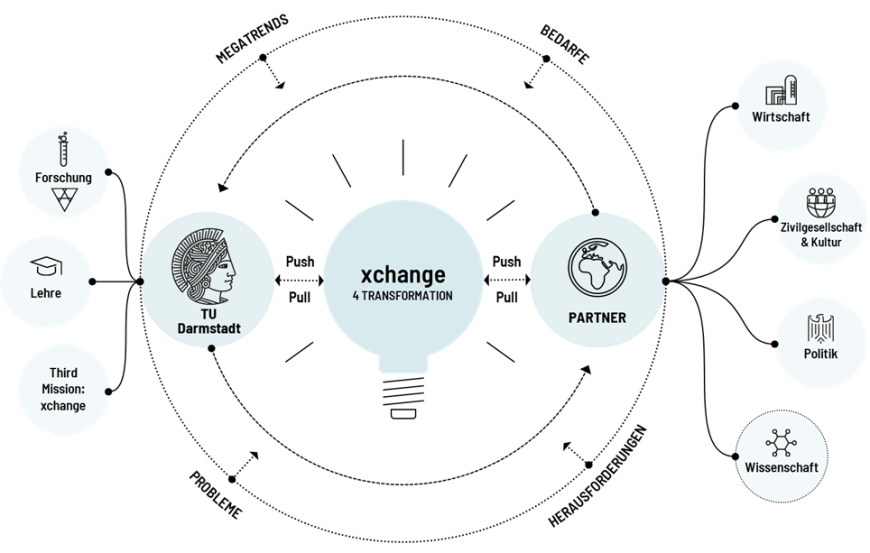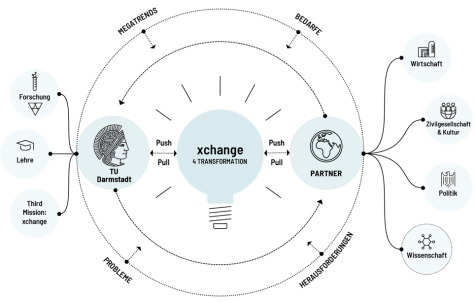xchange at TU Darmstadt refers to the dynamic exchange of ideas, knowledge, insights and technologies with partners from business, civil society, culture and politics, as well with partners from other academic institutions. We’re transforming the conventional definition of the third mission into xchange, a multidirectional approach. By doing so, we want to address the existential challenges our world faces as much as the needs and problems of our partners. Together, we’re initiating and shaping the trends of our time: xchange4transformation.

Concept and strategy
Concept and strategy
Partner-centred xchange to jointly develop future-focused and sustainable solutions with partners from business, civil society, politics and culture – what does this mean? Upon what vision and values is our xchange strategy based? What structures are we creating to implement the strategy?




















